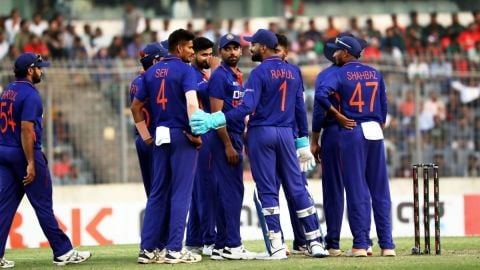
White-ball Cricket : There was talk about how Dravid and Rohit would nurture new, upcoming talent, and give clarity over the roles across formats to players apart from smooth transition in the Indian team. The first eight months of 2022 saw India winning bilateral series despite a few hiccups in terms of results.
They had batters who fitted in the T20 attacking mould, people who were looking to find their feet in ODI cricket and even Hardik Pandya was fit again to bring the necessary balance to the side, which was experimenting a lot with players and had captaincy duties handled by eight cricketers, partly due to hectic cricketing schedule.
Now, cut to present and it is all chaos. The experiments, which looked progressive early on, were dismantled to be back towards conservatism. When the T20 World Cup arrived, suddenly the bilateral series-winning Indian team became dependent on the exploits of Suryakumar Yadav, Virat Kohli and Arshdeep Singh.

